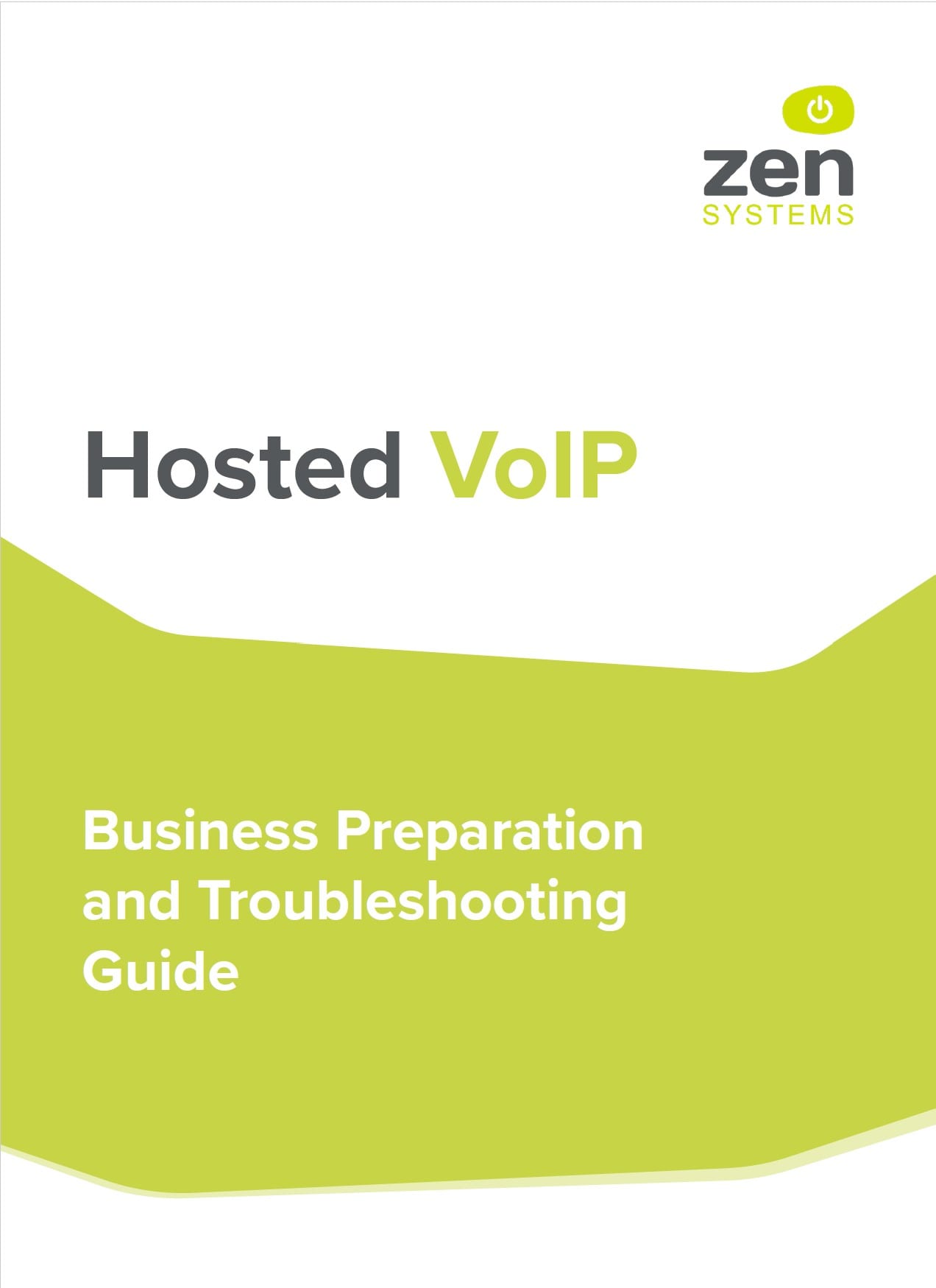Technology is taking over. Whether your business is embracing the Internet of Things (IoT), implementing VoIP (Voice over IP) or introducing a Bring Your Own Device (BYOD) policy, there’s more demand for bandwidth and access to your data than ever before with global IP traffic predicted to increase nearly threefold over the next 5 years.
Such escalating demand means your systems need to scale to improve the efficiency and reliability of your IT operations. If you fail to scale, then your business systems will (at best) suffer from a poor user experience and (at worst) be left vulnerable to cyber attacks and downtime.
So, it’s vital that your system can scale with your business, integrate with other systems and cope with this ever-increasing demand for information. After all, data is now widely regarded as the currency of the future and without it your business will not be able to effectively analyse and plan for its future growth.
However, scaling up your IT infrastructure is a complex challenge and 64% of organisations are now using some form of managed services to overcome their digital skills gaps, improve security, provide cost savings and peace of mind.
By working with an IT managed services provider, you’re collaborating with an expert in their field who can help you to define your IT business growth strategy by providing you with the best services for your network. Such a relationship works in a range of ways depending on the requirements of your business and its existing infrastructure, but here are four fundamental ways an IT managed service provider can help your business scale to success:
1. Implement a Flexible Telecoms System
Traditional telephone systems are difficult to scale. The more extensions you add, the more you are hit by licensings costs and, with per extension pricing and a limited number of ports, it’s pretty impossible to scale up.
However, by working with a managed service provider, you can replace your legacy phone system with a software-based alternative that will give you complete control over your costs and the freedom to grow without restrictions.
The cost savings associated with such an approach are apparent. Research reveals businesses save on average between 50 and 75% when they switch to VoIP. Plus, you can scale when you need to at a fixed monthly system cost, not per extension.
A software-based telecoms system can also be integrated into your mobile devices and allows for features such as video conferencing and instant messaging, which gives you a wider range of communication channels to help your teams collaborate more efficiently and keep your projects on track.
These unleash further benefits to your business as flexible work practices are now a possibility. What’s more, research reveals reducing travel costs for just one employee far outweighs the expense of a video conferencing system that can be used by an entire company.
IP-based communications also give you more flexibility to improve your customer and staff interactions, as well as easier management and new opportunities for CRM (Customer Relationship Management) integration and service innovations. And, with detailed reporting and call analytics available, you can see how productive your staff are and how your business is performing.
There are a wide range of options to choose from in this space. For example, 3CX is a software-based, open standards IP PBX (Private Branch eXchange) that offers complete unified communications, out of the box so you don’t have to worry about a complex and expensive installation process. Your IT services provider will be able to find the best solution to match your business’ communications requirements.
2. Have Confidence That Your Infrastructure Works
In the digital era, your network connects your entire business. It connects your staff and their devices to an infrastructure that needs to cope with increasing demands and scale appropriately. Your corporate infrastructure is also a concern for workers with 31% of UK employees claiming they have no confidence in the leadership of their company to create and run a modern digital infrastructure.
By working with a managed IT provider, you will gain complete control of your network and can alleviate such fears. Working over both wired and wireless networks, you can run group policies to easily control how much bandwidth is being used at any time. You can even control bandwidth by device type and, for example, define how much bandwidth your Apple or Windows updates can use during office hours to prevent your network slowing down.
A managed service provider relationship will also protect your business as you scale, through advanced security licensing and policy management. This includes malware quarantining /virus scanning, VLANs (Virtual Local Area Networks), ACLs (Access Control Lists) and reporting – all at the very edge of your network on the firewall, before it even reaches any of your devices.
3. Benefit From a Speedy Internet That Works for You
In 2016, global IP traffic was 1,200 exabytes, which gives you an idea of the staggering amount of data that goes through today’s networks.
In our opinion, the high-speed internet is a basic utility and one that is crucial to the successful functioning of your business. However, with so much data out there, access to high-speed connections is inconsistent and (sometimes) completely non-existent for many companies.
Downtime is a prevalent problem with 44% of businesses estimating they lose approximately $10,000 (£7,500) or more during an hour of downtime. So, you need reliable and resilient connections that can scale depending on your needs.
There are many options to consider for your internet connection, from basic ADSL to full fibre or leased line direct access. However, the good news is that the internet is completely scalable. So, if you install a 1,000 Mbps circuit, you can buy service at 100 Mbps and keep adding more as you need it. Gigabit fibre adoption is also starting to pick up and the UK Government recently launched a voucher scheme to further bring down the cost to businesses. Zen Systems is a registered supplier for this voucher scheme.
If you opt for leased line circuits, you will benefit from 24/7 monitoring with advanced usage analytics available so you can see which applications/services are using your bandwidth. A carrier SLA can also be put in place for fix times on leased lines, which helps you to better manage your downtime.
Bringing speed to your network is a complex undertaking. However, an IT managed provider will help you decide which is the best option for you, providing expert advice to ensure you have what you need and don’t find yourself paying for a service you don’t use. Plus, they’ll put a plan in place for your future upgrades as your business continues to grow.
One of the major benefits of working with an experienced managed service provider is that they will have a long-standing relationship with all of the top carriers and suppliers. So, they can negotiate and communicate on your behalf, taking away one of the many high-pressure situations IT managers often find themselves in. As a result, you’ll have an industry expert on hand to resolve any issues as quickly as possible now and into the future as your business scales.
4. Make Sure Your Network Allows You to Get Stuff Done
From managing network congestion to controlling traffic and supporting a plethora of devices, it takes a lot of work to make sure your users have what they need, which can get in the way of your work as an IT manager too.
However, network management is a crucial business task because, quite simply, if you ignore your network then your staff cannot do their job and your business will grind to a halt.
A managed IT service provider takes such time consuming network tasks away from IT managers, but also provides you with the information you need to make key business decisions. Cisco’s Meraki, for example, provides a centralised management system for WLAN, switching, security, EMM, and security cameras to eliminate the complexity of traditional architectures, reduce operating costs, and create business solutions.
Using such systems, you can eliminate the cost and headaches associated with onsite wireless controllers and unnecessary onsite visits through such cloud-managed access points and security appliances. What’s more, such systems provide the highest possible level of performance for all users without sacrificing your security or data privacy.
As a result, you can guarantee faster connections and better connectivity no matter how many devices you add to your network. Your corporate information will move efficiently and you can speed up your data flows through powerful cloud managed switches, firewalls and manageable wireless access points.







0 Comments